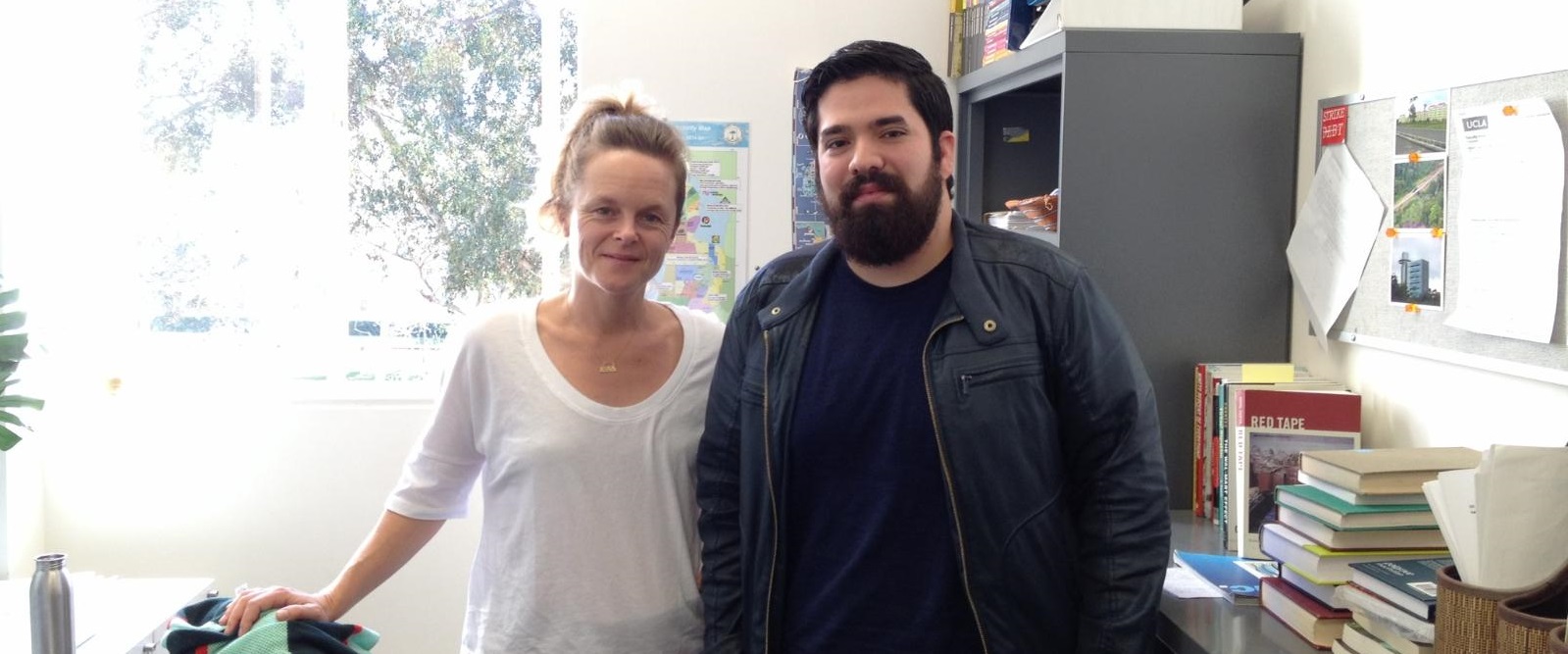
OUR IMPACT
Undergraduate Research Center – Humanities, Arts, and Social Sciences Research Program Impact
UCLA is unique in offering a center dedicated to undergraduate research in humanities, arts, social science, and behavioral science disciplines. The Undergraduate Research Center for the Humanities, Arts, and Social Sciences (URC-HASS) offers research and scholarship programs, research courses, faculty and student workshops, individual mentoring, and presentation and publication opportunities.
Analysis of URC-HASS major (multi-quarter) research scholarship programs shows they support UCLA priorities in equity, diversity, and inclusion while building transferable academic skills, fostering personal development, cultivating community, and preparing students for careers.
Click here to read our complete report on the impact of URC-HASS’s programming.
OUTCOMES OF UNDERGRADUATE RESEARCH
In addition to running undergraduate research programs, UCLA’s Undergraduate Research Center for the Humanities, Arts, and Social Sciences is well-positioned to study and communicate the outcomes of undergraduate research experiences in those fields. Through ongoing collaborations with researchers at UCLA’s Center for Educational Assessment, we have found a number of beneficial outcomes from undergraduate research experiences and faculty mentorship in the humanities, arts, and social sciences. This includes in-demand career skills, confidence, and community. Program alumni cite these and other benefits of undergraduate research in shaping their post-graduate careers, education, and self-understanding. Here are our recent peer-reviewed publications:
Academic and Professional Preparedness: Outcomes of Undergraduate Research in the Humanities, Arts, and Social Sciences
This research published in the summer 2021 edition (Volume 4, Number 4) of the journal Scholarship and Practice of Undergraduate Research (SPUR) highlights the important role that participating in undergraduate research plays in helping humanities, arts, and social science students develop important skills desired by today’s employers. Click here to access the full article on the Council of Undergraduate Research’s website for Scholarship and Practice of Undergraduate Research (SPUR) in Volume 4, Number 4.
While many studies on undergraduate research outcomes are focused on STEM fields, the widely variable experiences in the humanities, arts, and social sciences are less known and harder to study. The structure and standardization of the Undergraduate Research Scholars Program (URSP) and Undergraduate Research Fellows Program (URFP), both offered through UCLA’s Undergraduate Research Center – Humanities, Arts, and Social Sciences (URC-HASS), however, provide a unique opportunity to study the outcomes of these students. Compared with a quasi-control group of non-research students, students engaged in research reported statistically significant better outcomes on average in attaining skills related to critical thinking/problem solving, professionalism/work ethic, and oral/written communication, three of the top four competencies desired by hiring employers, as ranked by the National Association of Colleges and Employers (NACE).
This study and publication are the result of an ongoing collaboration between the URC-HASS and the Center for Educational Assessment (CEA). The authors of the paper are Drs. Kelly Kistner (Assistant Director, URC-HASS), Erin M. Sparck (Postdoctoral Scholar, CEA), Amy Liu (Research Analyst, CEA), Hannah Whang Sayson (Assistant Director of Data Analytics, CEA), Marc Levis-Fitzgerald (Director, CEA), and Whitney Arnold (former Director, URC-HASS).
Academic Growth and Professional Development through Undergraduate Humanities Research
The continued study of undergraduate research in building career-related skills for humanities majors was published in the Modern Language Association (MLA)’s journal, Profession in 2023. It explores the influence of undergraduate research on students’ postgraduate trajectories in their professional development.
While various colleges around the country cut undergraduate humanities majors and resources in favor of tracks they deem more career-oriented, this study argues that conducting research in the humanities gives undergraduate students vital professional skills. This argument is based on an analysis of undergraduate researchers in the humanities at the University of California, Los Angeles (UCLA), from 2000 to 2018. These researchers, who are now alumni, suggest that their undergraduate research experiences, in addition to giving them important academic competencies, played influential roles in preparing them for a variety of careers. Click here to access the full article on the MLA’s Profession.
The authors of the paper are Drs. Whitney Arnold (former Director, URC-HASS), Kelly Kistner (Assistant Director, URC-HASS), and Erin M. Sparck, and Marc Levis-Fitzgerald from UCLA’s Center for Educational Assessment.
Undergraduate Research in Humanities, Arts, and Social Sciences: Helping Students Navigate Uncertainty and Build Community through a Structured Cohort-Based Program
New research published in the Winter 2023 edition (Volume 7, Number 2) of the journal Scholarship and Practice of Undergraduate Research (SPUR) indicates the structured cohort-based undergraduate research programs (URP) in humanities, arts, and social sciences (HASS) help students build confidence in their research skills and connections to the community of scholars in their field.
The benefits of undergraduate research experiences are well documented, yet few studies focus on programs designed to support students conducting research in the fields of humanities, arts, and social sciences. In this study, the authors examine the learning experiences of students participating in the undergraduate research programs (URP) at UCLA, which support students conducting multiterm research or creative projects with faculty mentors. Drawing on data from students who participated in URP from 2015 to 2022 (N = 431), findings indicated that URP offered students structure, resources, mentorship, and peer networks to help them succeed. Further, students made significant gains in feeling connected to the research community and reported that undergraduate research was an important component of their academic career. Click here to access the full article on the Council of Undergraduate Research’s website for Scholarship and Practice of Undergraduate Research (SPUR) in Volume 7, Number 2.
The authors of the paper are Drs. Brit Toven-Lindsey, Erin M. Sparck, and Marc Levis-Fitzgerald from UCLA’s Center for Educational Assessment, and Kelly Kistner, Jacquelyn Ardam, and Whitney Arnold from the Undergraduate Research Center for the Humanities, Arts, and Social Sciences at UCLA.

